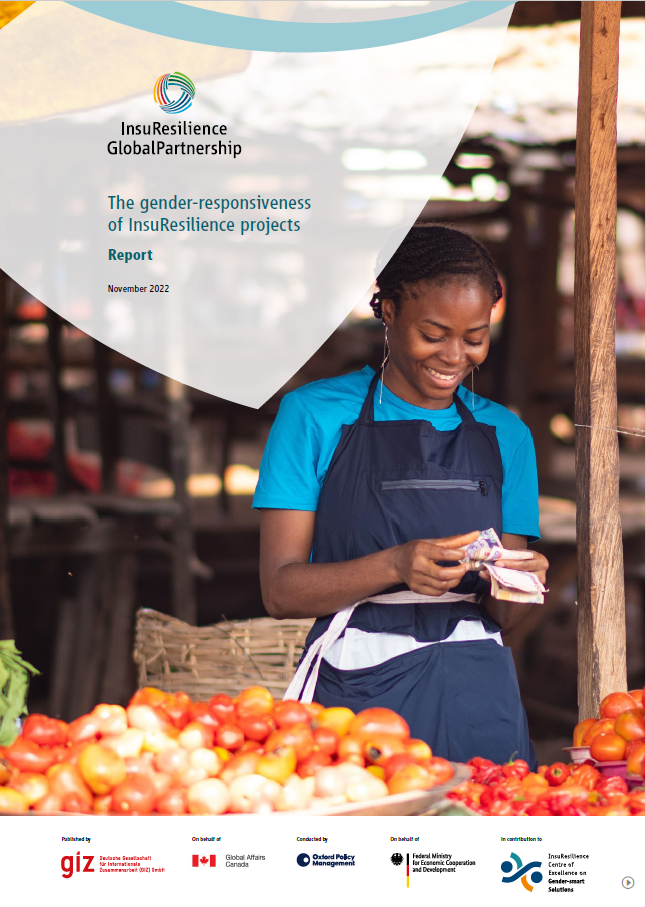The Gender-responsiveness of InsuResilience Projects
The InsuResilience Global Partnership (IGP) has prioritized gender as a key crosscutting objective in accordance with the definition in the IGP Vision 2025 and the Declaration on Gender. The aim is that all projects should meet the criteria for gender-responsive Climate and Disaster Risk Finance and Insurance (CDRFI). In order to achieve this, the IGP has carried out a range of actions, such as evaluating the gender-responsiveness of IGP programmes and projects as part of the IGP Monitoring and Evaluation (M&E) framework.
Gender-responsive programmes and projects work towards inclusion of the realities and needs of people of different gender within components such as site selection, project staff, research and data collection, expert engagement, monitoring, etc. All programmes need to account for differences in male, female and non-binary vulnerabilities to climate risks and disaster-induced wellbeing losses in order to ensure that they do not increase inequalities between different genders. The InsuResilience Secretariat commissioned Oxford Policy Management (OPM) through the InsuResilience Centre of Excellence on Gender-smart Solutions (CoE) to carry out a study in 2022. The study investigated the extent to which policy commitment at the IGP level is realized at the programme and project levels with the aim of measuring the gender-responsiveness of the IGP programmes and projects. This report serves not only members of the partnership but a broad audience to understand challenges and approaches for solution to design projects in a gender-responsive manner for effective Climate and Disaster Risk Finance and Insurance.


